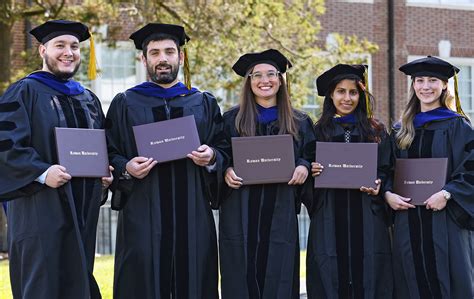Introduction
Emory University’s Clinical Psychology PhD program is renowned for its rigorous curriculum, exceptional faculty, and cutting-edge research opportunities. This highly competitive program attracts a diverse cohort of aspiring psychologists who seek to advance their knowledge and skills in the field of clinical psychology.

Program Overview
The Emory University Clinical Psychology PhD program is a five-year, full-time academic and clinical training program accredited by the American Psychological Association (APA). The program’s curriculum emphasizes a scientist-practitioner model, providing students with a comprehensive understanding of both research and clinical practice.
Core Courses
- Foundations of Clinical Psychology
- Psychopathology
- Psychotherapy
- Research Methods
- Statistics
Clinical Rotations
Students complete a variety of clinical rotations in diverse settings, including:
- Inpatient and outpatient mental health clinics
- Hospitals
- Schools
- Community organizations
Faculty and Research
Emory University boasts a world-class faculty of clinical psychologists who are actively engaged in research and clinical practice. The program’s faculty members have expertise in a wide range of clinical areas, including:
- Anxiety and mood disorders
- Child and adolescent psychology
- Trauma and PTSD
- Health psychology
The program’s research labs are well-funded and support a wide range of research projects, such as:
- Developing new treatments for mental health disorders
- Investigating the neurobiological mechanisms of mental illness
- Evaluating the effectiveness of clinical interventions
Program Highlights
Research Opportunities
Students in the Clinical Psychology PhD program have access to numerous research opportunities, both within the university and through collaborations with external partners. These opportunities allow students to gain hands-on experience in research design, data collection, and analysis.
Clinical Training
The program’s clinical training model emphasizes evidence-based practices and integrates research findings into clinical interventions. Students receive intensive supervision and mentoring from experienced clinicians.
Diversity and Inclusion
Emory University is committed to diversity and inclusion in all aspects of its educational programs. The Clinical Psychology PhD program actively recruits and supports students from underrepresented backgrounds.
Admissions Requirements
Admission to the Clinical Psychology PhD program is highly competitive. Applicants must meet the following minimum requirements:
- Master’s degree in psychology or a related field
- Minimum GPA of 3.5
- GRE scores (verbal and quantitative) in the 60th percentile or higher
- Three letters of recommendation
- Research experience
- Personal statement
- Interview
Career Pathways
Graduates of the Emory University Clinical Psychology PhD program have a wide range of career opportunities, including:
- Clinical psychologist in private practice or hospital setting
- Researcher in academia or industry
- Policymaker in government or nonprofit organizations
- Educator in psychology or related fields
Alumni Success
Emory University’s Clinical Psychology PhD program has produced numerous successful alumni who have made significant contributions to the field. Notable alumni include:
- Dr. Thomas A. Widiger, past president of the American Psychological Association
- Dr. David H. Barlow, leading expert on anxiety disorders and evidence-based treatments
- Dr. Michael B. Thase, researcher and clinician specializing in mood disorders
Cost and Funding
The total cost of the Clinical Psychology PhD program, including tuition, fees, and living expenses, is approximately $200,000. A variety of financial aid options are available, including scholarships, fellowships, and teaching assistantships.
Conclusion
Emory University’s Clinical Psychology PhD program provides aspiring psychologists with an exceptional opportunity to advance their knowledge and skills in the field. The program’s rigorous curriculum, world-class faculty, and cutting-edge research opportunities prepare graduates for successful careers as clinicians, researchers, and leaders in the field of clinical psychology.
Additional Resources
- Emory University Clinical Psychology PhD Program website
- American Psychological Association (APA)
- Association for Psychological Science (APS)
Tables
Table 1: Clinical Psychology PhD Program Statistics
| Statistic | Value |
|---|---|
| Number of students admitted per year | 12-15 |
| Average GRE score (verbal) | 158 |
| Average GRE score (quantitative) | 160 |
| Percentage of students who receive financial aid | 70% |
| Median time to degree completion | 5 years |
Table 2: Clinical Psychology PhD Program Research Focus Areas
| Focus Area | Faculty Expertise |
|---|---|
| Anxiety and mood disorders | Dr. David H. Barlow, Dr. Michael B. Thase |
| Child and adolescent psychology | Dr. Elizabeth A. Vandiver |
| Trauma and PTSD | Dr. Judith S. Beck |
| Health psychology | Dr. Thomas A. Wadden |
| Neuropsychology | Dr. Steven L. Small |
Table 3: Clinical Psychology PhD Program Clinical Rotations
| Setting | Location |
|---|---|
| Inpatient mental health unit | Emory University Hospital Midtown |
| Outpatient mental health clinic | Emory Clinic |
| Children’s hospital | Children’s Healthcare of Atlanta |
| School | Atlanta Public Schools |
| Community organization | United Way of Greater Atlanta |
Table 4: Clinical Psychology PhD Program Career Pathways
| Career Pathway | Median Salary |
|---|---|
| Clinical psychologist in private practice | $75,000 – $150,000 |
| Clinical psychologist in hospital setting | $80,000 – $120,000 |
| Researcher in academia | $60,000 – $100,000 |
| Researcher in industry | $70,000 – $120,000 |
| Policymaker in government | $75,000 – $150,000 |
| Policymaker in nonprofit organization | $60,000 – $100,000 |
| Educator in psychology | $60,000 – $100,000 |
